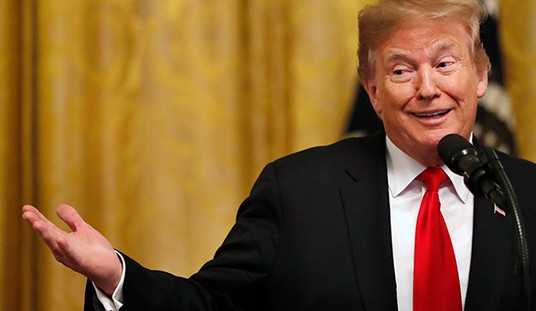There hasn’t been a dull moment in Israeli politics lately. In a dramatic move that everyone knew was coming — but nobody knew when — Prime Minister Ehud Olmert tendered his resignation to Israeli President Shimon Peres Sunday night, just in time for the evening news.
Peres must now fulfill his constitutional duty by calling on a member of Knesset to try to form a government. That challenge, which is essentially the privilege to attempt become Israel’s next prime minister, is expected to go to the newly crowned head of the Kadima party, Tzipi Livni.
The current foreign minister earned the right last week after she beat Shaul Mofaz in a primary by a grand total of 431 votes. Even that narrow 1% margin overstates her controversial victory. On election day, Livni’s lawyers, alarmed by what looked like a low turnout, successfully petitioned the party courts to keep the polls open longer than scheduled — nobody knows what the results might have looked like if that hadn’t happened.
As if that weren’t bad enough, 15 minutes before the precincts closed, media outlets broadcast exit polls forecasting a double-digit win for Livni, which may have discouraged supporters of her opponent from making their voice heard. Perhaps worst of all, 430 votes from the Bedouin village of Rahat, where Mofaz is said to have had overwhelming support, were disqualified.
Believing defeat was unfairly snatched from the jaws of victory, Mofaz shocked even his closest advisors by storming out of the arena, announcing he was taking a break from political life. The relatively minor shockwaves triggered by his departure may prove to be significantly stronger when the next elections are held.
There was an ethnic aspect to the contest that is likely to have ramifications. Given his standing as a prominent Sephardi Jew, Mofaz’s bitterness at losing a race to a full-fledged member of the Ashkenazi elite should resonate with a community that has long felt discriminated against. Sephardi voters have called the Likud party their home for three decades and as a result of the Mofaz defeat, the decision of many in 2006 to vote for Kadima may prove a one-time aberration.
With Mofaz’s desertion, Kadima has also now lost the security bona fides of a former IDF chief of staff and minister of defense. A party that ran three years ago on Ariel Sharon’s record and could boast of having a lineup that included heavyweights like Peres, Olmert, and Mofaz now has someone with no security experience leading what are perceived as a mediocre bunch of party hacks.
How long Livni’s popularity will compensate for such a weak bench and for her own thin record remains to be seen. She may seek to boost her party’s appeal by bringing in some new talent to fill the ministerial posts vacated by herself, Mofaz, and perhaps the justice minister, who dared to take on Israel’s powerful legal establishment and now has members of the Labor Party demanding he be dismissed.
But in order to be in a position to divvy up political spoils, Livni must first cobble together a governing coalition. For this, bringing in Ehud Barak’s Labor Party is the necessary, though not sufficient, condition. The good news for Livni is that Labor, a party that loves its perks, refusing to join an Israeli government is a bit like a fish refusing to jump into water. The bad news is that Barak seems to finally have appreciated that Labor needs to be in the opposition if it ever hopes to regain power.
After ruling Israel for its first three decades, Labor has won exactly two of the last ten elections (Yitzhak Rabin in 1992 and Barak in 1999). Both came after stints in the opposition. Sitting in Olmert’s centrist coalition is believed to have dampened Labor support among left-of-center voters. Playing second fiddle to a far more popular Livni could finish Labor off for good.
Barak has no good options. If he doesn’t join Livni, he will likely face a snap election that he will lose badly. If he joins Livni, she may go to elections in a few months anyway, but with the enormous advantage of being a sitting prime minister. Barak is trying to avoid this scenario by getting a commitment from Livni to form a government that will serve out the remaining two years of the Knesset’s term. The problem for Barak is that he has no leverage, and Livni knows it.
With Barak on board and with a Pensioner Party that has no political future in her pocket, Livni will turn her sights to Shas. This ultra-Orthodox party, which has often been the balance of power in Israel’s unstable political system, will drive a hard bargain at first, claiming it too is unafraid of elections. True, polls confirm that Shas’ support is steady. But Shas has much to fear from the aftermath of elections in which it could be left out of the government. That is exactly what happened in 2003 and Shas spent three years cooling its heels in the opposition. Shas does not want to wake up after a titanic Bibi-Livni face-off to see both Likud and Kadima strengthened and Shas effectively irrelevant. Since Livni will be able to form a narrow government even without them, look for Shas to find an excuse to join the coalition.
With Labor and Shas, Livni will have her government. Israelis will then finally get to see for themselves whether she is up to handling one of the most difficult jobs on the planet.
For a crisis in Israel is never long in coming.









Join the conversation as a VIP Member